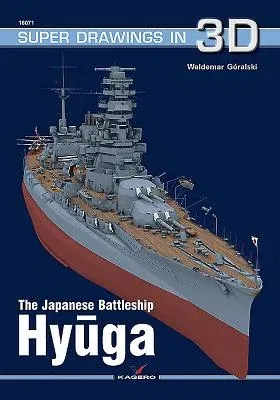The Japanese Navy ordered two new battleships in 1912. They were an
improved version of Fuso type battleships. Their construction was
included in the equipment plan 8-4 of the fleet (8 battleships and 4
heavy cruisers), which was approved by the government and parliament.
The amount of money allocated totaled 80 million yen.
Design work began in 1913 and all funds for the start of word were
collected by July 1914. On May 6, 1915, at the Mitsubishi group shipyard
in Nagasaki, a keel for the new battleship was laid. On January 27,
1917, the ship was launched receiving the name Hyuga (after the name of
the province). On November 1, 1917, Commander Eitaro Shimodairo became
the first captain of the battleship.
The Hyuga battleship project was based on the design of the Fuso
battleship. Some changes were made to it. The hull was extended by 3
meters, and the armor of the ship's magazines and the central command
post were changed. The layout of guns 1 and 2 was changed, which allowed
placing the boiler room closer to the bow and fitting the funnels closer
to each other. It also allowed putting artillery guns 3 and 4 behind the
boiler room. It was not a good choice, because it was necessary to carry
the steam ducts to the engine room through the ship's magazines. A
better solution was to install the wires under the ship's magazines and
over the double bottom.

